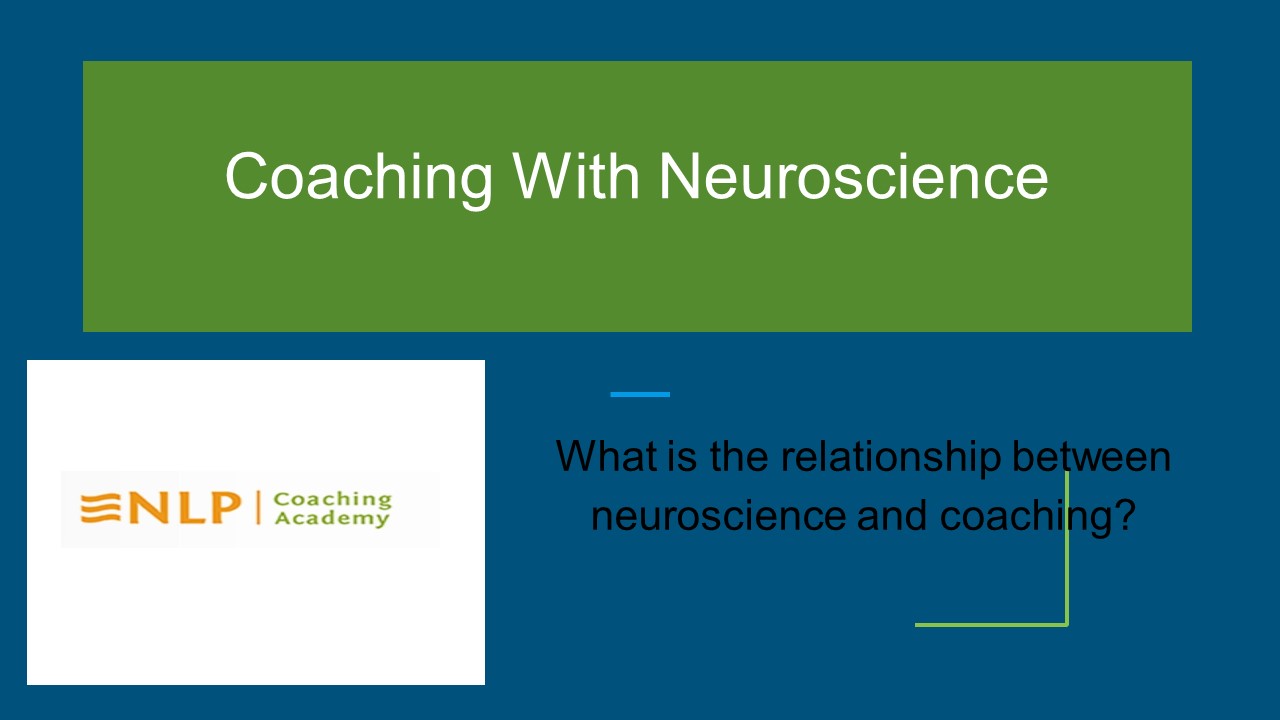Coaching With Neuroscience (1) - PowerPoint PPT Presentation
Title:
Coaching With Neuroscience (1)
Description:
In Introduction to Coaching with Neuroscience, the intricacy of neurological coaching is condensed to the events and behaviors that have the most significant ramifications for clients. Co-Active Coaching has been shown in neuroscience study to help clients establish new positive brain networks, respond to stress more calmly, make better decisions, and access much more creativity. People's lives become simpler, more prosperous, and more rewarding as a result. It has the potential to help you develop as a person and as a leader while also supporting you in reaching your goals. For more information visit us : – PowerPoint PPT presentation
Number of Views:3
Title: Coaching With Neuroscience (1)
1
Coaching With Neuroscience
- What is the relationship between neuroscience and
coaching?
2
Introduction
- The study of the brain has grown in popularity
and significance in the realm of human evolution
and development. Understanding how the brain
operates is useful for coaches because we can
tailor our coaching to coincide with how the
brain naturally functions. Most people seek
coaches to help them improve their ways of
thinking, behaving, performing, interacting with
others, and approaching their job and lives. To
be effective, we must first understand how the
brain facilitates change and transformation. - Neuroscientists have validated what we already
know dramatic, long-term change is more
difficult than we imagine. Consider how many
important changes you and your mentees have tried
and how many have failed. Because of that,
Coaching With Neuroscience Helps You in Many
ways.Because leaders focus on the wrong things
and don't grasp what it takes for people to alter
their behavior and attitudes, 85 percent of
change attempts in organizations fail.
Information and motivation are insufficient to
motivate people to change. Transformation,
whether on an individual or organizational level,
necessitates ongoing focused attention on new
possibilities and new behaviors - rather than on
the problem - as well as genuine dedication and
effort over time.
3
Why is change so difficult?
- When our brain notices changes in our
surroundings, it sends out powerful signals that
something is wrong. These signals originate in
the orbital cortex, which is linked to the
brain's fear circuitry in the amygdala. These
signals divert our attention away from making a
change and instead reaffirm our commitment to
preserving things as they are. One of the most
essential advantages of coaching is the focus it
provides for the coach to concentrate on what
they actually want and to develop the willpower
to push over the brain's anti-change messages. - Attention density, defined as how much attention
we devote to anything, is the key to effecting
genuine change in the brain and in our life,
according to Jeffrey Schwartz, a neuroscientist
and author. When we wish to create a
transformational shift, we need to focus our
attention on the new thought, behavior, or
prospect we want to pursue. You build connections
where you focus your attention.With enough
attention density, our thoughts and new behaviors
can become ingrained in our personalities,
influencing how we view and interact with the
world.
4
How the Brain Functions
- The prefrontal cortex is the brain's 'executive
function,' which means it determines good and
bad, predicts future repercussions or current
acts, and works toward goals. This is where
change begins. The prefrontal cortex is
responsible for acquiring new skills and houses
our working memory. It has limited resources,
easily fatigued, and can only hold a limited
amount of ideas at once. - Because it controls voluntary movement as well as
habitual behaviors and habits, the basal ganglia
is known as the brain's automatic pilot. During
these everyday activities, it operates without
conscious thinking. Because working memory in the
prefrontal cortex fatigues quickly, we direct as
many processes as possible to the basal ganglia.
It is difficult to modify these habits and
routines once they have become established in
this portion of the brain.
5
Coaching Implications
- The basal ganglia is in charge of much of what
people do at work. We are ignorant of the
numerous habits we have in interacting with
others, running meetings, communicating, and all
of the other activities that comprise our daily
routines.True change necessitates the creation of
new neural networks in the brain, which utilizes
the prefrontal cortex. Because you are literally
creating new pathways in the brain, this process
takes time and demands a lot of effort and
concentration. For the transforming process to
succeed, both you and your coach must be
persistent and patient. - One of the most difficult obstacles for new
coaches is resisting problem-solving and offering
advice. According to neuroscience, these two
tendencies operate against the coach's
transformation. In reality, focusing on the
problem focuses and expands the problem in the
individual's mind, whereas focusing on a future
vision where the problem has been addressed or
dispersed aids in the creation of solutions.
6
There is also evidence that when people come to
their own ideas, their brain forms several
connections, giving them a rush of energy that
not only uplifts them but also motivates them to
act on their discovery. Coaching enables the
coach to pay close attention to their ideas and
opportunities. Where your coach's attention is
focused develops connections in their brain,
which boosts their mental resources. This gives
them greater energy to defy homeostasis and
promotes long-term change. For more information
visit us https//nlpcoach.in/emotional-intellige
nce-coach-practitioner/































